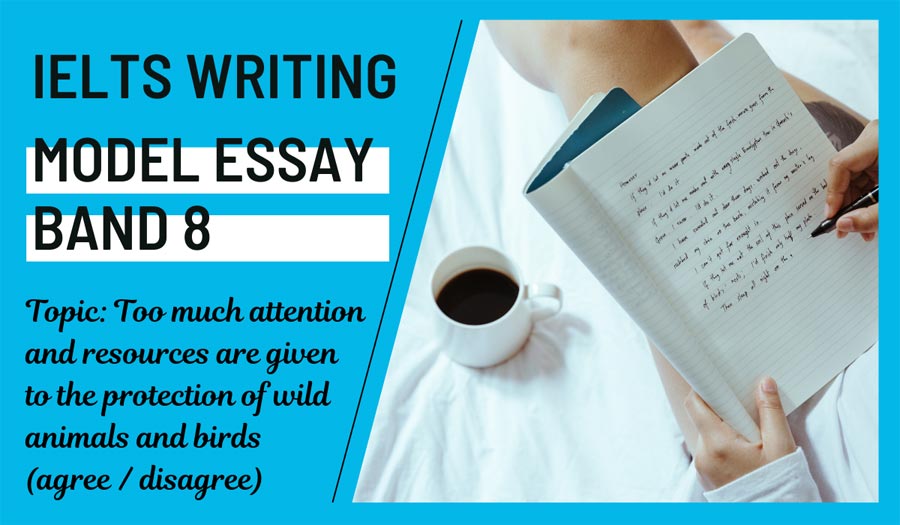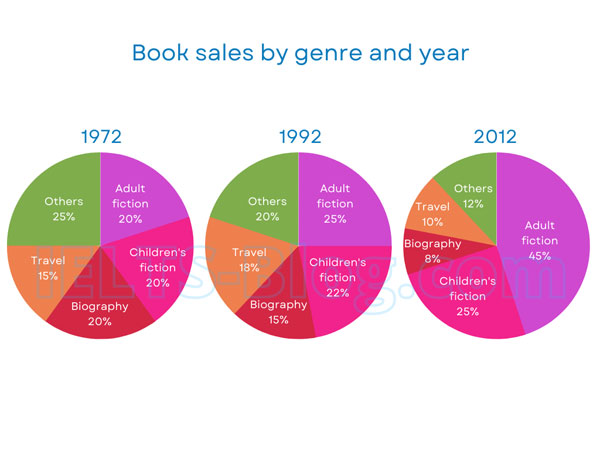
This essay topic was seen in recent IELTS test in India.
Some people say that too much attention and resources are given to the protection of wild animals and birds. To what extent do you agree or disagree?
In recent years, the increasing allocation of resources for the protection of wild animals and birds has given rise to the question of whether or not it is justified. While some argue that these efforts are crucial for maintaining biodiversity, others believe that the resources and attention dedicated to this cause are excessive. Personally, I think that humanity has other needs that are equally worthy of funding.
The first point to consider is that the disproportionate focus on wildlife conservation often overshadows more pressing human concerns. For instance, resources allocated for the protection of a single endangered species could potentially be redirected to address urgent human needs, such as healthcare, education, or poverty alleviation. In developing countries, where resources are particularly scarce, the choice to prioritise wildlife over critical human issues can be especially problematic. For example, in some African nations, vast sums are invested in protecting certain wildlife species, while basic human necessities remain unmet for a significant portion of the population.
Furthermore, excessive focus on wildlife protection can lead to unintended negative consequences for local communities. Often, conservation efforts involve restricting access to natural resources that communities have traditionally relied upon, leading to economic hardships. In parts of Asia, for instance, the establishment of protected areas for tigers has sometimes resulted in the displacement of indigenous communities or restrictions on their access to forest resources, which are vital for their livelihoods. Not only does this create conflict between humans and wildlife, but it also raises ethical questions about the fairness of such conservation strategies.
In conclusion, while the protection of wild animals and birds is unquestionably important, striking a balance is crucial. The current overemphasis on wildlife conservation, often at the expense of addressing human needs and respecting the rights of local communities, suggests a need for rethinking. A sustainable approach should consider both environmental and human factors equally.
Teacher’s feedback:
Overall, the essay would likely receive a Band 8. It effectively addresses the task with a clear position, is well-organised, uses a wide range of vocabulary, and demonstrates a high level of grammatical control.
Task Response: Band 8
The essay presents a clear opinion and supports it with relevant examples. For instance, the writer discusses the allocation of resources to wildlife conservation versus urgent human needs like healthcare and education, and the impact on local communities in Asia and Africa. To achieve a higher band, the argument could be deepened with more varied perspectives or solutions.
Coherence and Cohesion: Band 8
The essay is well-organised with clear paragraphing. Cohesive devices such as “Furthermore” and “For instance” are used to connect ideas. For a higher band, more sophisticated cohesive devices could be employed.
Lexical Resource: Band 8
The essay uses a good range of vocabulary, including terms like “disproportionate,” “unintended negative consequences,” and “sustainable approach.” To reach a higher band, more precise and varied vocabulary could be used.
Grammatical Range and Accuracy: Band 8
The essay demonstrates a mix of simple and complex sentence structures with accuracy. Examples of complex structures include conditional phrases (“could potentially be redirected”) and relative clauses (“that communities have traditionally relied upon”). The grammar is largely accurate, contributing to the clarity of the essay.
Submit your essay for correction and find out how to improve your Writing score.
Click here to see more IELTS essays of Band 8





